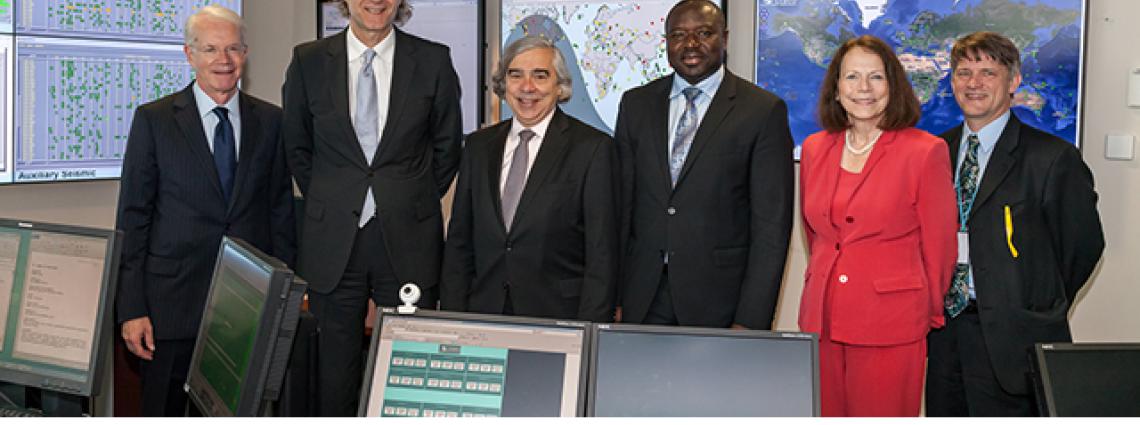Ministerial Briefings at CTBTO Top the Agenda
U.S. Secretary of Energy Ernest Moniz met with the Executive Secretary of the Preparatory Commission for the Comprehensive Nuclear-Test-Ban Treaty Organization (CTBTO), Tibor Tóth, and Executive Secretary-elect Lassina Zerbo on 2 July 2013 and was updated on the latest scientific developments to strengthen the network that monitors the globe for nuclear explosions.
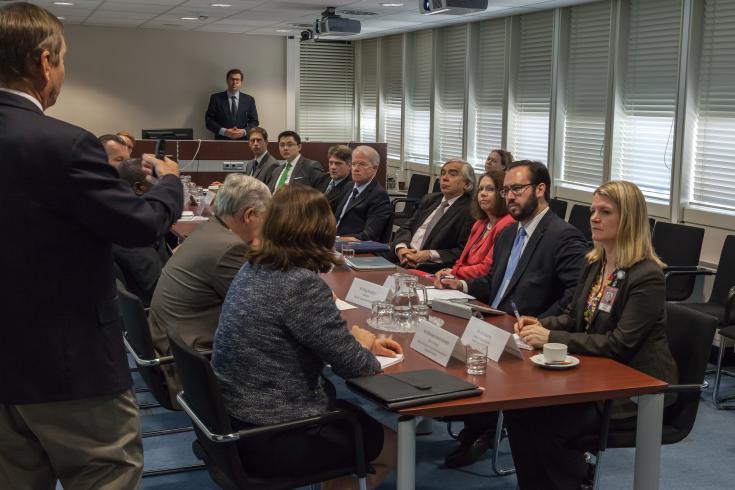
U.S. delegation headed by Secretary of Energy Ernest Moniz is briefed at the CTBTO.
President Obama remains very committed [to ratifying the CTBT].
The worldwide network designed to detect all nuclear explosions is over 85% operational. It recorded the nuclear test announced by North Korea in February this year quickly and accurately, as well as previous tests in 2009 and 2006 on which Moniz was briefed.
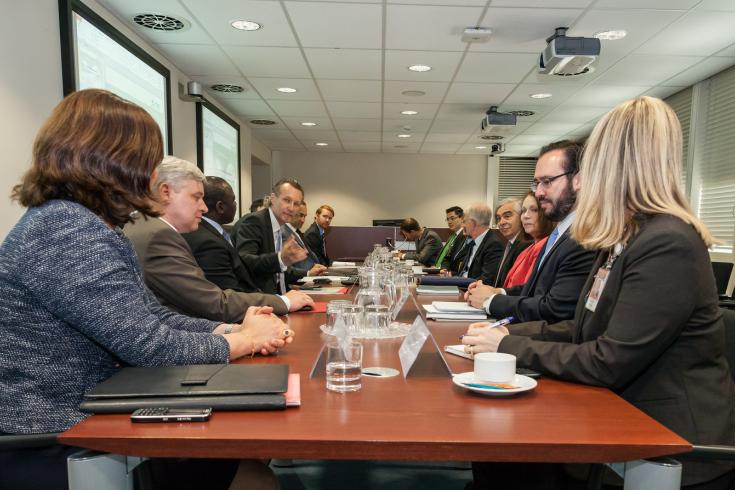
Executive Secretary Tóth briefs the visiting U.S. delegation.
For more on the United States and the CTBT: country profile
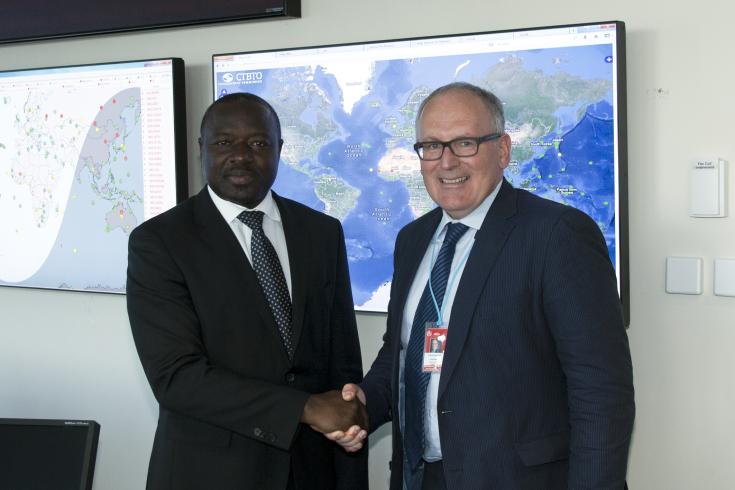
Netherland's Foreign Affairs Minister, Frans Timmermans (right), with Lassina Zerbo.
For more on Morocco and the CTBT: country profile
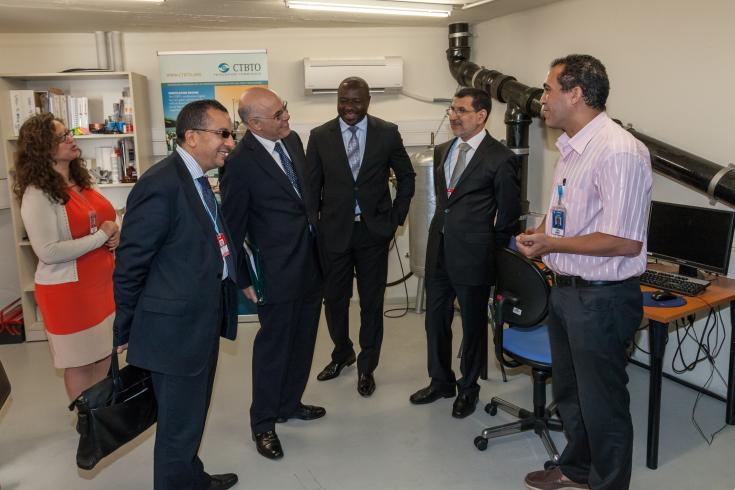
The Moroccan delegation at a radionuclide test facility on the roof of the CTBTO’s headquarters.
South Africa's ratification in 1999 carries the signature of Mandela, a passionate supporter of the Treaty.
For more on South Africa and the CTBT: country profile
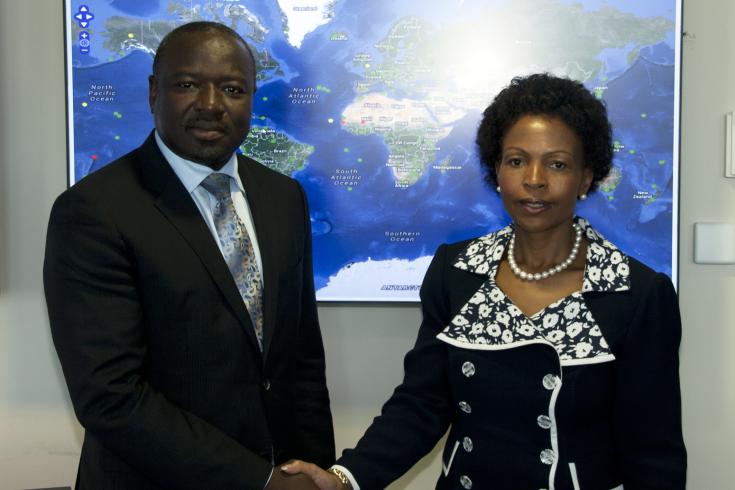
South African Minister of International Relations and Cooperation, Maite Nkoana-Mashabane (right), with Lassina Zerbo.
For more on Iraq and the CTBT: country profile
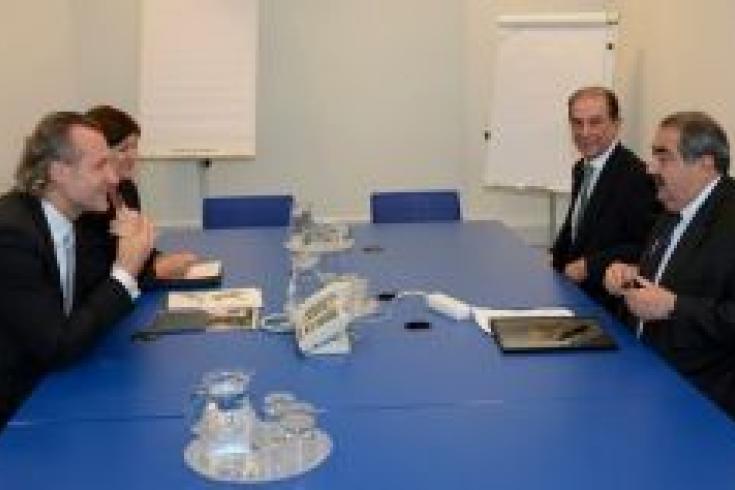
Executive Secretary Tóth (lower left) meets with the visiting Iraqi delegation headed by Foreign Minister Hoshyar Zebari (lower right).
For more on Argentina and the CTBT: country profile
4 Jul 2013
